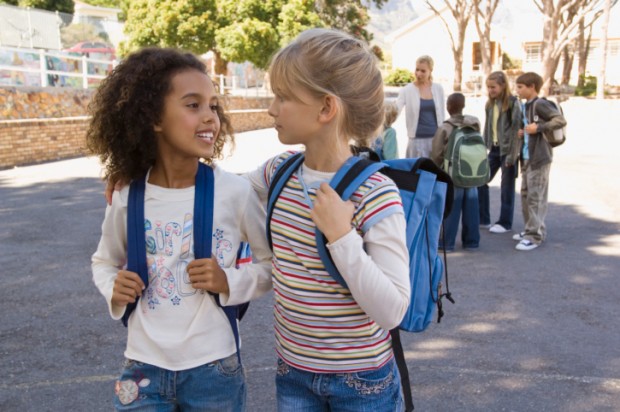Educators are aware that social problems like poverty, unsafe neighborhoods, violence, and family trauma can affect how students learn when they come to school. Though teaching subjects like math and literacy are the biggest part of their job, in many cases they're also called on to attend to their students' emotional health as well, incorporating social and emotional skills.
“Science is starting to show that there is a very strong integration between social and emotional skills and learning,” said Vicki Zakrzewski, education director of the Greater Good Science Center at U.C. Berkeley, which studies the psychology, sociology and neuroscience of well-being during a recent Forum radio show. “Some scientists believe that cognitive achievement is 50 percent of the equation and social and emotional skills are the other 50 percent.”
Some school districts are taking that idea seriously and integrating the research into teaching practices. Oakland Unified School District, for example, is piloting a program called Roots of Empathy in 20 schools across the district. The program teaches students how to be empathetic by bringing a baby and the baby's parent into K-12 classrooms. The students are asked to think about the baby's experience as it explores the classroom, while a trained facilitator helps them name the baby's feelings and emotions. Focusing on the baby and its vulnerability allows students to practice empathy, making it easier to identify their own emotions in the future. As they become more self-aware they're better able to develop respectful and caring relationships.
“It’s a launching pad for the children to apply the understanding of emotion and perspective taking that they've learned through this little baby to themselves and then the bridge to understanding how their classmates feel,” said Mary Gordon, who founded the program. Gordon says that when children learn to be empathetic they naturally behave less aggressively. Researchers at the University of British Columbia have documented her claim that when students develop emotional literacy they can begin to talk about their feelings, frustrations and anger without acting out. She’s implemented her program in schools across the U.S. and Canada, in rural, suburban and urban settings and says it works everywhere.


